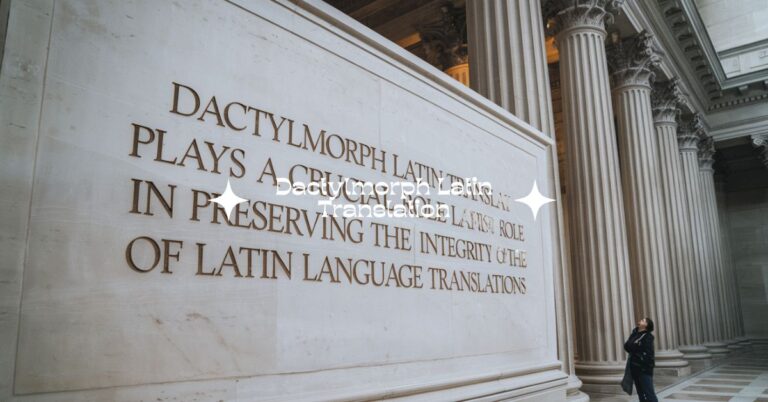Synchrony Charitable Wealth Planning: Plan For The Future!
Synchrony Charitable Wealth Planning is an integration of charitable giving into your financial strategy. It provides tax advantages, flexible donation options like Donor-Advised Funds, and helps create a lasting impact while ensuring that your financial goals remain intact.
“Stay tuned with us as we dive deeper into how Synchrony Charitable Wealth Planning can transform your giving strategy!”
What is Synchrony Charitable Wealth Planning?
Synchrony Charitable Wealth Planning is a strategy that combines charitable giving with personal financial management. It helps individuals contribute to causes they care about while ensuring their financial security.
This planning involves choosing the right giving vehicles, like donor-advised funds or charitable trusts, to maximize tax benefits. It also integrates charitable goals into broader financial and estate plans. The goal is to make charitable contributions that align with financial stability and create a lasting impact.
How does Synchrony Charitable Wealth Planning benefit my financial goals?

1. Tax Savings:
Charitable giving may reduce your taxes. You can obtain tax deductions on your contributions, and in case you give assets like stocks, you can save on additional taxes. It helps you save money and still support what you care about.
2. Benefiting Your Family:
Including charity in your estate plan can help lower the taxes your family might pay on your estate. That way, more of your wealth goes to your loved ones and the causes you care about.
3. Giving Smarter:
With DAFs or charitable trusts, among others, you can extend the impact of your donation and receive tax benefits sooner. That way, you give more and have influence over the spending of it.
4. Financial Flexibility:
Charitable planning helps you make donations so that your long-term goal to save for retirement and other needs is not interfered. You give while keeping secure and financially stable for the rest of your life.
5. Endowment:
Charitable planning enables leaving a lasting legacy. By planning gifts that keep on giving after you are gone, you can create a legacy to support important causes for generations.
What are Donor-Advised Funds (DAFs)?
Donor-Advised Funds (DAFs) are accounts that let you donate to a fund and recommend how it should be distributed to charities. You receive an immediate tax deduction when you contribute. DAFs offer flexibility, allowing you to give over time, with investments that can grow the fund.
You can suggest which charities should receive the donations, but the sponsoring organization makes the final decision. They help you manage charitable giving efficiently while maximizing tax benefits.
Read: Drawing:Oldj_7nsvxk= Skull: A Comprehensive Guide For Beginners!
What charitable vehicles are available through Synchrony Charitable Wealth Planning?
Through Synchrony Charitable Wealth Planning, you have access to a variety of charitable vehicles that can be tailored to further your financial goals and intended philanthropy. These include:
1. Donor Advised Funds (DAFs):
You can contribute appreciated assets, receive an immediate income tax deduction, and designate grants to charities over the life of the fund giving you flexibility and control with your charitable giving.
2. Charitable Remainder Trusts (CRTs):
CRTs give you lifetime or term income, and the balance of the assets passes to charity at your death. This vehicle is a tool for estate planning while also giving back to charitable causes.
3. Private Foundations:
A private foundation enables you to create a charitable organization with more control over grant-making, but it is accompanied by more administrative responsibility and regulation.
4. Charitable Lead Trusts:
CLTs can make a series of payments for charity in exchange for giving all or much of the rest of that property to your heirs often reducing estate and gift tax.
Can I use Synchrony Charitable Wealth Planning to reduce my taxes?
Yes, Synchrony Charitable Wealth Planning offers tax benefits through strategic charitable giving. Donations can qualify for income tax deductions, lowering your taxable income. Donating appreciated assets can help avoid capital gains taxes.
Charitable contributions also reduce the size of your taxable estate, which may lower estate taxes. These tax advantages make giving more efficient and allow you to maximize your philanthropic impact while minimizing your tax burden.
How do I integrate charitable giving into my overall financial plan?
To integrate charitable giving into your financial plan, start by defining your charitable goals and assessing your financial capacity. Choose suitable giving vehicles like donor-advised funds or charitable trusts.
Incorporate your charitable giving into your estate plan to create a lasting legacy. Work with a financial advisor to ensure your donations align with your overall financial goals. Regularly review your plan to adjust as your financial situation or charitable priorities evolve.
Strategies for Implementing Synchrony Charitable Wealth Planning:

Charitable giving offers some significant tax benefits that will help reduce your overall tax liability while supporting causes you care about:
1. Income Tax Deductions:
You can use donations to qualified 501(c)(3) organizations as an itemized deduction on your tax return, which reduces your overall tax liability. The IRS allows up to a 60% adjusted gross income deduction for cash contributions, depending upon the form of contribution.
2. Capital Gains Tax Savings:
You can avoid paying capital gains taxes on the appreciation of assets like stocks, real estate, or other investments by donating them. In this way, you do not pay tax on the appreciation while still giving to charity, and the charity receives the full value of the asset.
3. Estate Tax Reducibility:
Charitable Giving will enable the reduction of taxable estate values by means of lower estate tax as a whole since gifts through the will and/or trust will be transferred to a charitable entity, thereby giving you that much desired legacy at a diminished cost for taxes in the calculation on which the taxing authorities will weigh against the recipients.
4. Tax-Free Growth:
Contributions to certain charitable vehicles, such as donor-advised funds, grow tax-free. The donated assets can be invested and grow over time without being subject to taxes, allowing you to maximize the amount available for charitable giving in the future.
Case Studies: Success Stories of Synchrony Charitable Wealth Planning!
1. The Johnson Family:
The Johnsons established a donor-advised fund (DAF) to contribute to environmental charities. By working with Synchrony, they made tax-savvy donations that maximized their impact. Their efforts have significantly supported environmental preservation projects.
2. Maria’s Scholarships:
Maria set up a scholarship fund to provide financial assistance to deserving students.
Synchrony helped her create a plan that maximized her charitable contributions and tax benefits. The fund has opened doors for many students in need of higher education.
3. The Lewis Family:
The Lewises chose a charitable remainder trust (CRT) to donate to charity while securing their financial future. This strategy ensures they receive income while leaving a lasting charitable legacy. Synchrony played a key role in helping them balance their charitable and retirement goals.
4. Local Business Owner:
A local business owner set up a charitable plan to support education programs in their community. Synchrony guided them in structuring their donations for tax efficiency and community impact. Their support has contributed to enhancing local educational opportunities.
5. Family Healthcare Fund:
A family established a healthcare fund to support medical research and initiatives. Synchrony helped them organize the fund in a way that reduced estate taxes and ensured longevity. The fund is set to make a lasting impact on healthcare for generations to come.
Can I donate appreciated assets, like stocks, through Synchrony Charitable Wealth Planning?
Yes, you can donate appreciated assets like stocks through Synchrony Charitable Wealth Planning. Donating appreciated assets allows you to avoid capital gains taxes, which would otherwise apply if you sold the assets.
The full value of the donation goes to the charity or Donor-Advised Fund (DAF), increasing the impact. Additionally, you may be eligible for a charitable deduction based on the asset’s current market value. This strategy helps maximize your charitable contribution while providing valuable tax benefits.
What is the difference between Synchrony Charitable Wealth Planning and more typical forms of giving?

The greatest contrast between Synchrony Charitable Wealth Planning and traditional types of giving is in structure and financial strategy, however.
1. Long-term Strategy:
Synchrony Charitable Wealth Planning fits within a comprehensive financial plan for your long-term financial goals. Most other charitable giving is more impulse-oriented or one-time in nature.
2. Tax Benefits:
Synchrony provides tax benefits by allowing you to plan your donations using Donor-Advised Funds or Charitable Trusts. Most people who give traditionally do not benefit as much from tax deductions or strategies.
3. Customization:
Synchrony offers customized planning with choices such as recurring gifts or establishing private foundations. On the other hand, normal giving is usually one-time gifts with little control over how the money is invested or dispersed.
4. Legacy Creation:
Using Synchrony, you can create a philanthropic legacy by planning for continued charitable contributions that can extend for generations. Traditional giving usually consists of immediate or short-term donations with little emphasis on legacy.
5. Financial Integration:
Synchrony’s approach harmonizes with your overall wealth management, combining charitable giving with retirement, estate, and tax planning. Most methods of giving are isolated to the donation without any consideration of other financial elements.
Read: The How Of Digital And Analytics In Insurance Thestudypoints:
FAQs:
1. Can I create a Private Foundation through Synchrony Charitable Wealth Planning?
Yes, Synchrony offers the option to set up a Private Foundation. It provides control over your charitable donations. However, it involves higher setup costs and administrative requirements.
2. How do I choose the best charitable giving vehicle for my needs?
The choice of vehicle depends on your goals and preferences. Options include Donor-Advised Funds or Charitable Trusts, for example, which offer varying levels of control. A financial advisor can help guide you to the best choice.
3. How do I know my charitable donations will be used effectively?
To ensure impact, research charities’ financial transparency. Look for those that show how they allocate donations and track their outcomes. This helps ensure your contributions make a real difference.
4. Can charitable giving impact my estate plan?
Yes, charitable gifts can lower your estate tax burden. Including charitable donations in your estate plan can reduce taxes for your heirs. It’s a way to support causes while benefiting from tax advantages.
5. What happens if my financial situation changes?
You can adapt your charitable giving plan based on the changing tides of your finances. Synchrony has flexible planning; thus, you can alter your donation schedule according to your new circumstances. A constant review ensures your plan is always up-to-date.
6. Can I give to charity in a recurring way?
Yes, you can establish automatically recurring donations. That in itself is helpful for enabling continued support to causes of one’s concern. It has a way of creating constant results over time.
7. Are there administrative costs associated with charitable wealth planning?
Yes, there are fees for managing funds like Donor-Advised Funds or Private Foundations. These fees cover administrative and investment management costs. They are usually a small percentage of the funds.
8. Can I involve my family in my charitable wealth planning?
Yes, involving your family is encouraged. You can create family giving plans to ensure continued support for causes. It helps establish a philanthropic legacy across generations.
9. How do I get started with Synchrony Charitable Wealth Planning?
Contact Synchrony or a financial advisor to get started. They will help you assess your charitable goals and choose the right vehicle. They will guide you through the entire process, ensuring a personalized plan.
Conclusion:
Synchrony Charitable Wealth Planning helps you give to charity in a way that benefits your finances. It offers options like Donor-Advised Funds and Charitable Trusts to maximize your donations. This planning ensures you can support causes while keeping your financial goals secure.
Read more:






